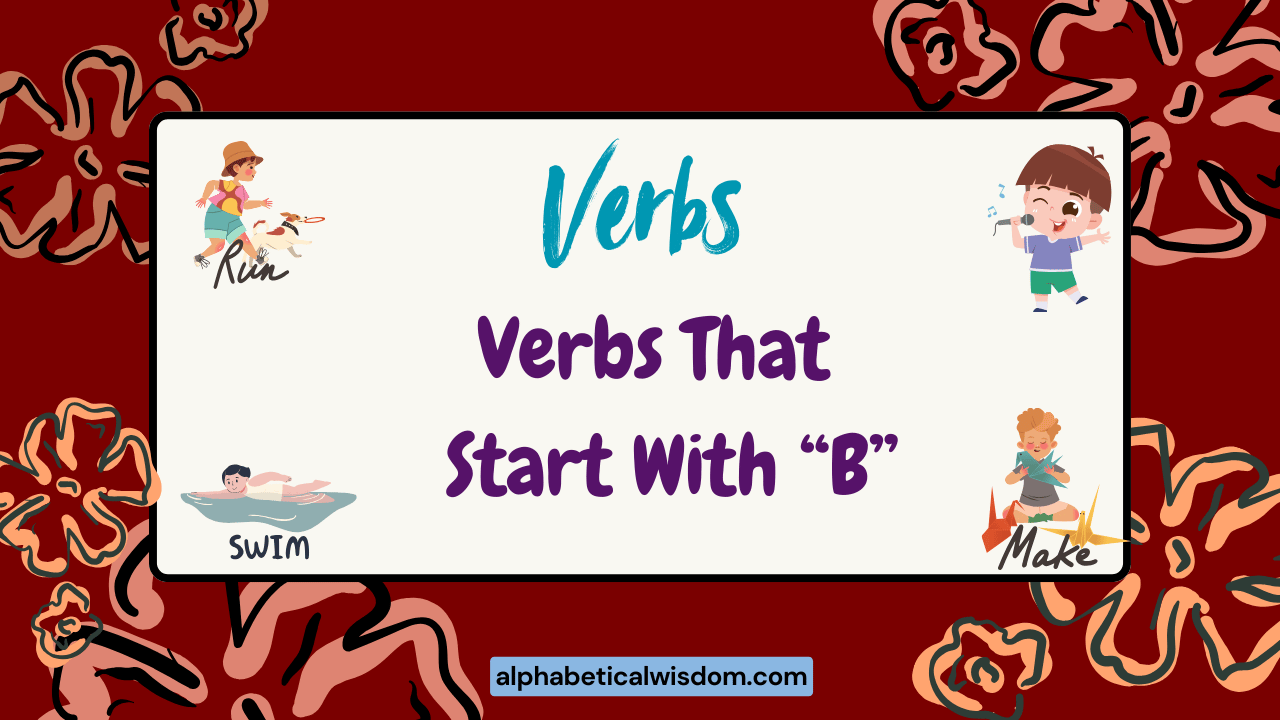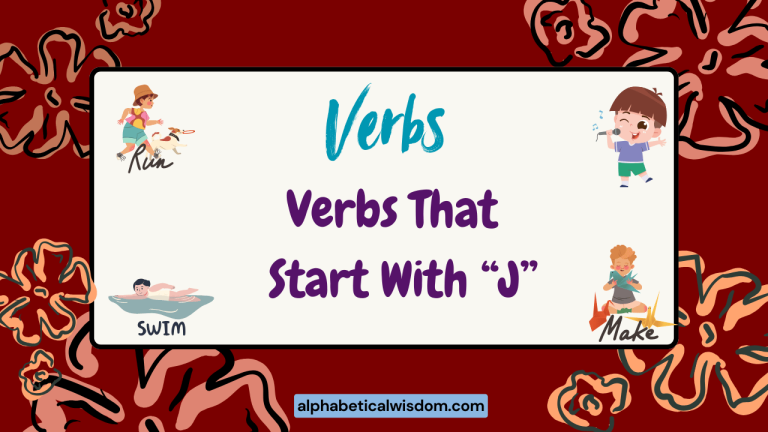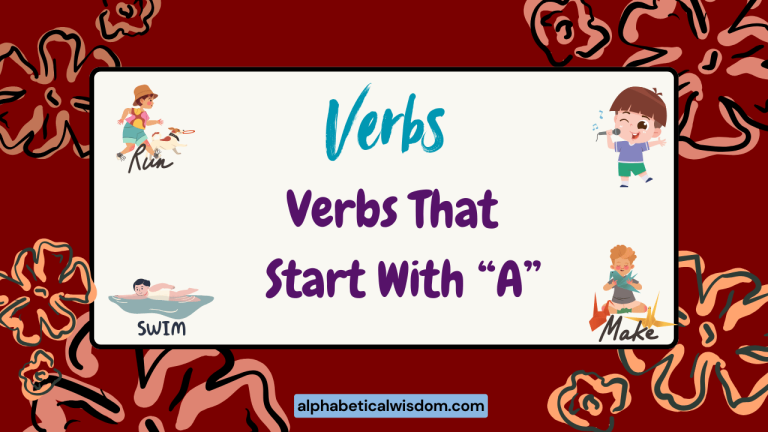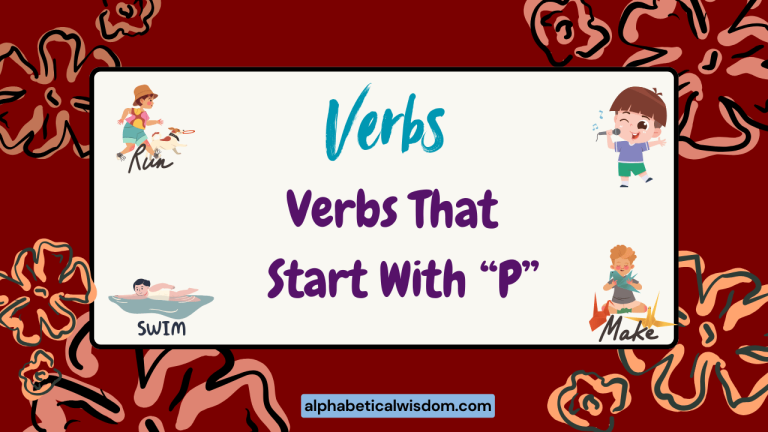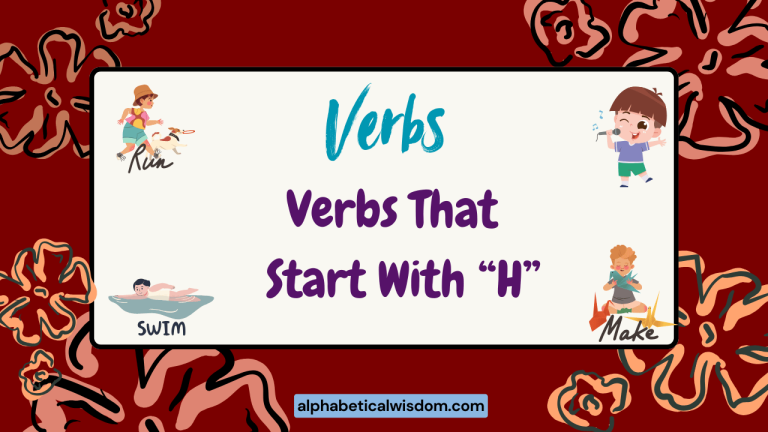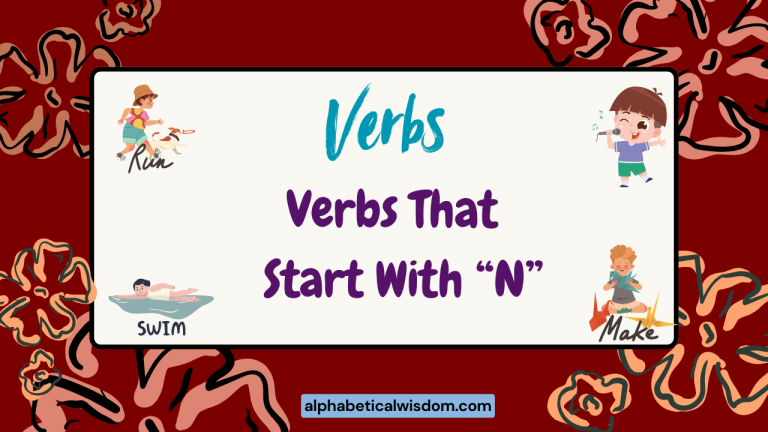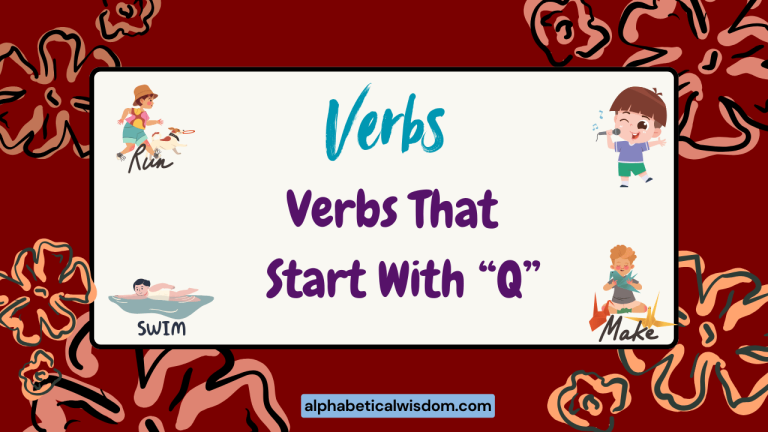Verbs Starting With B: A Comprehensive Grammar Guide
Understanding verbs is crucial for constructing grammatically correct and meaningful sentences in English. This article focuses specifically on verbs that begin with the letter “B,” exploring their diverse meanings, usage, and common pitfalls.
Mastering these verbs will enhance your vocabulary, improve your writing skills, and allow you to express yourself more precisely and effectively. Whether you’re a beginner or an advanced learner, this guide provides valuable insights and practical exercises to solidify your understanding of “B” verbs.
This guide is designed for English language learners of all levels, from beginners seeking to expand their vocabulary to advanced speakers aiming to refine their grammar and usage. Native English speakers can also benefit from this comprehensive review of verbs starting with “B,” reinforcing their understanding and addressing potential areas of confusion.
By the end of this article, you will have a solid grasp of how to use these verbs correctly and confidently.
Table of Contents
- Introduction
- Definition of Verbs Starting With B
- Structural Breakdown of Verbs Starting With B
- Types and Categories of Verbs Starting With B
- Examples of Verbs Starting With B
- Usage Rules for Verbs Starting With B
- Common Mistakes with Verbs Starting With B
- Practice Exercises
- Advanced Topics
- FAQ
- Conclusion
Definition of Verbs Starting With B
A verb is a word that describes an action, occurrence, or state of being. Verbs are essential components of sentences, forming the predicate and indicating what the subject does, is, or experiences.
When we focus on verbs starting with the letter “B,” we’re simply narrowing our scope to a specific subset of the vast English verb lexicon. These verbs, like all verbs, can be classified based on their function (action, linking, auxiliary), transitivity (transitive, intransitive), and regularity (regular, irregular).
Verbs that start with “B” encompass a wide range of meanings, from simple actions like “bake” and “build” to more abstract concepts like “believe” and “behave.” Understanding these verbs involves not only knowing their definitions but also recognizing how they function grammatically within a sentence. This includes understanding their different forms (base form, past simple, past participle, present participle) and how they interact with other parts of speech.
Structural Breakdown of Verbs Starting With B
The structure of verbs starting with “B” is no different from that of any other English verb. They can appear in various tenses (present, past, future) and aspects (simple, continuous, perfect, perfect continuous).
Understanding how to conjugate these verbs is crucial for forming grammatically correct sentences.
Here’s a breakdown of the structural elements:
- Base Form: The infinitive form of the verb (e.g., *be*, *become*, *begin*).
- Past Simple: The form used to describe completed actions in the past (e.g., *was/were*, *became*, *began*).
- Past Participle: The form used with auxiliary verbs to create perfect tenses (e.g., *been*, *become*, *begun*).
- Present Participle: The form used with auxiliary verbs to create continuous tenses (e.g., *being*, *becoming*, *beginning*). This form always ends in “-ing”.
- Third-Person Singular Present: The form used when the subject is a singular noun or pronoun in the third person (e.g., *is*, *becomes*, *begins*).
Types and Categories of Verbs Starting With B
Verbs can be categorized in several ways based on their function and behavior within a sentence. Understanding these categories helps in using verbs correctly and effectively.
Action Verbs
Action verbs describe physical or mental actions. They tell us what the subject of the sentence *does*.
Many verbs starting with ‘B’ fall into this category.
Examples include: *bake*, *build*, *break*, *bring*, *buy*, *bathe*, *boil*, *bounce*, *breathe*, *brush*, *bite*, *bleed*, *blink*, *block*, *blossom*, *blow*, *blur*, *blush*, *boast*, *bomb*.
Linking Verbs
Linking verbs connect the subject of a sentence to a noun or adjective that describes or identifies the subject. The most common linking verb is “be” in its various forms (is, am, are, was, were, been, being).
Other linking verbs starting with “B” are less common, but *become* can function as a linking verb.
Example: *He will become a doctor.* (Here, “become” links “he” to the noun “doctor.”)
Auxiliary Verbs
Auxiliary verbs, also known as helping verbs, assist the main verb in a sentence. The primary auxiliary verbs are *be*, *do*, and *have*.
The verb *be* is the most common auxiliary verb starting with “B”.
Example: *I am studying English.* (Here, “am” is an auxiliary verb helping the main verb “studying.”)
Transitive Verbs
Transitive verbs require a direct object to receive the action. The action “transits” from the subject to the object.
Many verbs starting with ‘B’ can be transitive.
Examples: *He broke the vase.* (*vase* is the direct object), *She bought a car.* (*car* is the direct object), *They built a house.* (*house* is the direct object), *I baked a cake.* (*cake* is the direct object)
Intransitive Verbs
Intransitive verbs do not require a direct object. The action does not “transit” to an object.
Some verbs starting with ‘B’ are intransitive.
Examples: *She breathed deeply.*, *The flower blossomed.*, *The baby babbled.*, *He blushed.*, *They bowed.*
Regular Verbs
Regular verbs form their past simple and past participle by adding “-ed” to the base form. Many verbs starting with ‘B’ are regular.
Examples: *bake – baked – baked*, *boil – boiled – boiled*, *brush – brushed – brushed*, *bomb – bombed – bombed*, *blossom – blossomed – blossomed*
Irregular Verbs
Irregular verbs do not follow the regular “-ed” pattern for forming their past simple and past participle. They have unique forms that must be memorized.
Many important verbs starting with ‘B’ are irregular.
Examples: *be – was/were – been*, *become – became – become*, *begin – began – begun*, *break – broke – broken*, *bring – brought – brought*, *build – built – built*, *buy – bought – bought*, *bite – bit – bitten*, *bleed – bled – bled*, *blow – blew – blown*
Examples of Verbs Starting With B
Here are extensive examples of verbs starting with “B” used in various contexts. The examples are organized into tables for clarity.
Examples of Action Verbs Starting with B
This table presents various action verbs that start with the letter ‘B’, demonstrating their use in different sentences and contexts.
| Verb | Example Sentence |
|---|---|
| Bake | She loves to bake cookies for her friends. |
| Build | They are going to build a new house next year. |
| Break | Be careful not to break the glass. |
| Bring | Please bring your homework to class tomorrow. |
| Buy | I need to buy groceries this afternoon. |
| Bathe | He bathes his dog every Sunday. |
| Boil | Boil the water before adding the pasta. |
| Bounce | The children bounced the ball in the park. |
| Breathe | Remember to breathe deeply when you are stressed. |
| Brush | You should brush your teeth twice a day. |
| Bite | The dog might bite if you get too close. |
| Bleed | The cut on his finger started to bleed. |
| Blink | She blinked in the bright sunlight. |
| Block | The fallen tree blocked the road. |
| Blossom | The cherry trees blossom in the spring. |
| Blow | The wind started to blow fiercely. |
| Blur | Tears blurred her vision. |
| Blush | He blushed when she complimented him. |
| Boast | He tends to boast about his achievements. |
| Bomb | The country decided to bomb the enemy’s stronghold. |
| Bargain | He tried to bargain for a lower price at the market. |
| Ban | The government decided to ban the use of plastic bags. |
| Banish | The evil wizard was banished from the kingdom. |
| Baptize | They decided to baptize their child in the local church. |
| Bar | The security guard had to bar the entrance to unauthorized personnel. |
| Bark | The dog started to bark loudly at the mailman. |
| Barnstorm | The pilot decided to barnstorm across the country. |
| Bash | He accidentally bashed his head on the low ceiling. |
| Bask | She loves to bask in the sun on the beach. |
Examples of Linking Verbs Starting with B
This table shows how the verb “become” can function as a linking verb, connecting the subject to a description or identification.
| Verb | Example Sentence |
|---|---|
| Become | She will become a famous singer one day. |
| Become | The weather became colder as the day went on. |
| Become | He became president of the company last year. |
| Become | The caterpillar will become a butterfly. |
| Become | They became good friends after working together. |
| Become | The situation became critical very quickly. |
| Become | She became increasingly frustrated with the slow service. |
| Become | He became known for his innovative ideas. |
| Become | The project became a success due to their hard work. |
| Become | The audience became silent as the speaker began. |
| Become | After years of training, he became a skilled surgeon. |
| Become | The old house became a haunted attraction during Halloween. |
| Become | With time, the pain became easier to bear. |
| Become | The community became stronger after the disaster. |
| Become | The relationship became strained after the argument. |
| Become | He became a vegetarian for ethical reasons. |
| Become | The city became a popular tourist destination. |
| Become | The software became outdated very quickly. |
| Become | The team became champions after winning the final game. |
| Become | The food became spoiled because it was left out too long. |
| Become | She became an expert in her field after years of study. |
| Become | He became more confident as he gained experience. |
| Become | The company became bankrupt due to poor management. |
| Become | The task became overwhelming due to its complexity. |
| Become | The price of gasoline became unaffordable for many people. |
| Become | The language became easier to learn with practice. |
| Become | The problem became apparent after further investigation. |
| Become | The situation became tense as the negotiations continued. |
| Become | The idea became a reality through hard work and dedication. |
Examples of Auxiliary Verbs Starting with B
This table shows how the verb “be” functions as an auxiliary verb in different tenses and aspects.
| Verb | Example Sentence |
|---|---|
| Be (am) | I am studying English. |
| Be (is) | She is going to the store. |
| Be (are) | They are playing soccer. |
| Be (was) | He was reading a book. |
| Be (were) | We were watching TV. |
| Be (been) | I have been to Paris. |
| Be (being) | She is being very helpful. |
| Be (will be) | They will be arriving tomorrow. |
| Be (can be) | It can be difficult to learn a new language. |
| Be (should be) | You should be more careful. |
| Be (might be) | It might be raining later. |
| Be (must be) | He must be tired after the long journey. |
| Be (going to be) | She is going to be a doctor. |
| Be (being) | The house is being renovated. |
| Be (had been) | They had been waiting for hours. |
| Be (has been) | She has been working hard. |
| Be (being) | The problem is being addressed. |
| Be (to be) | The project is to be completed by next week. |
| Be (being) | The cake is being baked right now. |
| Be (is being) | The report is being written. |
| Be (are being) | The students are being tested. |
| Be (was being) | The car was being repaired. |
| Be (were being) | The documents were being reviewed. |
| Be (will have been) | By next year, I will have been living here for ten years. |
| Be (would be) | It would be nice to go on vacation. |
| Be (could be) | That could be a good idea. |
| Be (should have been) | He should have been more careful. |
| Be (might have been) | It might have been a mistake. |
Examples of Regular and Irregular Verbs Starting with B
This table highlights the differences between regular and irregular verbs starting with “B,” showing their base form, past simple, and past participle forms.
| Verb (Base Form) | Past Simple | Past Participle | Regular/Irregular |
|---|---|---|---|
| Bake | Baked | Baked | Regular |
| Boil | Boiled | Boiled | Regular |
| Bomb | Bombed | Bombed | Regular |
| Blossom | Blossomed | Blossomed | Regular |
| Brush | Brushed | Brushed | Regular |
| Be | Was/Were | Been | Irregular |
| Become | Became | Become | Irregular |
| Begin | Began | Begun | Irregular |
| Break | Broke | Broken | Irregular |
| Bring | Brought | Brought | Irregular |
| Build | Built | Built | Irregular |
| Buy | Bought | Bought | Irregular |
| Bite | Bit | Bitten | Irregular |
| Bleed | Bled | Bled | Irregular |
| Blow | Blew | Blown | Irregular |
| Bend | Bent | Bent | Irregular |
| Bet | Bet | Bet | Irregular |
| Bind | Bound | Bound | Irregular |
| Breed | Bred | Bred | Irregular |
| Broadcast | Broadcast | Broadcast | Irregular |
| Burst | Burst | Burst | Irregular |
Usage Rules for Verbs Starting With B
Using verbs correctly involves understanding various grammatical rules. Here are some key rules to consider when using verbs starting with “B”:
- Subject-Verb Agreement: Ensure that the verb agrees with its subject in number (singular or plural). For example, “She bakes” (singular) vs. “They bake” (plural).
- Tense Consistency: Maintain consistency in verb tenses within a sentence or paragraph. Avoid unnecessary shifts in tense. For example, “He began to study, and he became fluent.” (both in the past tense).
- Correct Form of Irregular Verbs: Pay close attention to the correct past simple and past participle forms of irregular verbs. For example, the past simple of “begin” is “began,” not “begined.”
- Use of Auxiliary Verbs: When using auxiliary verbs, ensure they are correctly paired with the main verb. For example, “I am baking a cake” (present continuous).
- Transitive vs. Intransitive: Use transitive verbs with a direct object and intransitive verbs without one. For example, “He broke the window” (transitive) vs. “She breathed deeply” (intransitive).
Exceptions and Special Cases: Certain verbs may have irregular forms or specific usage rules. For example, the verb “be” has multiple forms (am, is, are, was, were, been, being) depending on the subject and tense. It’s crucial to learn these exceptions to avoid errors.
Common Mistakes with Verbs Starting With B
Even experienced English speakers sometimes make mistakes with verbs. Here are some common errors to watch out for when using verbs starting with “B”:
| Incorrect | Correct | Explanation |
|---|---|---|
| She be going to the store. | She is going to the store. | Incorrect use of the verb “be.” Requires correct conjugation (is, am, are). |
| I have being to Paris. | I have been to Paris. | Incorrect use of the past participle of “be.” The correct form is “been.” |
| He beginned to study. | He began to study. | Incorrect past simple form of the irregular verb “begin.” The correct form is “began.” |
| They have brake the window. | They have broken the window. | Incorrect past participle form of the irregular verb “break.” The correct form is “broken.” Also, “brake” is a noun. |
| She boughted a car. | She bought a car. | Incorrect past simple form of the irregular verb “buy.” The correct form is “bought.” |
| He is being late. | He is late. | In this context, “being” is unnecessary. “Is” serves as a linking verb. |
| The dog bited me. | The dog bit me. | Incorrect past simple form of the irregular verb “bite.” The correct form is “bit.” |
| I bringed the book. | I brought the book. | Incorrect past simple form of the irregular verb “bring.” The correct form is “brought.” |
| She builded a house. | She built a house. | Incorrect past simple form of the irregular verb “build.” The correct form is “built.” |
| The flower be blossomed. | The flower blossomed. | The auxiliary verb “be” is unnecessary with the intransitive verb “blossom” in the past simple. |
Practice Exercises
Test your understanding of verbs starting with “B” with these practice exercises. Choose the correct form of the verb in each sentence.
Exercise 1: Fill in the Blanks with the Correct Form of the Verb “Be”
Instructions: Fill in the blanks with the correct form of the verb “be” (is, am, are, was, were, been, being).
| Question | Answer |
|---|---|
| 1. I _____ going to the store later. | am |
| 2. She _____ a doctor. | is |
| 3. They _____ playing soccer. | are |
| 4. He _____ reading a book yesterday. | was |
| 5. We _____ watching TV last night. | were |
| 6. I have _____ to Paris before. | been |
| 7. She is _____ very helpful today. | being |
| 8. They _____ arriving tomorrow morning. | will be |
| 9. It _____ difficult to learn a new language. | can be |
| 10. You _____ more careful next time. | should be |
Exercise 2: Choose the Correct Past Simple Form
Instructions: Choose the correct past simple form of the verb in parentheses.
| Question | Answer |
|---|---|
| 1. He (begin) _____ to study last night. | began |
| 2. She (break) _____ the glass accidentally. | broke |
| 3. They (buy) _____ a new car last week. | bought |
| 4. I (bake) _____ a cake for the party. | baked |
| 5. He (bring) _____ his homework to class. | brought |
| 6. She (build) _____ a sandcastle on the beach. | built |
| 7. The dog (bite) _____ the mailman. | bit |
| 8. He (bleed) _____ after the accident. | bled |
| 9. The wind (blow) _____ strongly yesterday. | blew |
| 10. She (become) _____ a doctor after years of study. | became |
Exercise 3: Identify Transitive and Intransitive Verbs
Instructions: Identify whether the verb in each sentence is transitive (T) or intransitive (I).
| Question | Answer |
|---|---|
| 1. She baked a cake. | T |
| 2. He breathed deeply. | I |
| 3. They built a house. | T |
| 4. The flower blossomed. | I |
| 5. She bought a car. | T |
| 6. He blushed. | I |
| 7. They broke the window. | T |
| 8. The baby babbled. | I |
| 9. She brought the book. | T |
| 10. They bowed. | I |
Advanced Topics
For advanced learners, let’s delve into some more complex aspects of verbs starting with “B”:
- Phrasal Verbs: Many verbs starting with “B” are used in phrasal verbs (e.g., *break down*, *bring up*, *burn out*). Understanding the meaning and usage of these phrasal verbs is crucial for advanced fluency.
- Subjunctive Mood: The subjunctive mood is used to express wishes, suggestions, or hypothetical situations. Verbs starting with “B” can appear in the subjunctive mood (e.g., “I suggest that he *be* on time.”).
- Inversion: In certain grammatical constructions, the auxiliary verb “be” can be inverted with the subject (e.g., “Rarely *is* he late.”).
Exploring these advanced topics will further refine your understanding of English grammar and allow you to use verbs starting with “B” with greater precision and sophistication.
FAQ
Here are some frequently asked questions about verbs starting with “B”:
- What are the most common irregular verbs starting with “B”?
The most common irregular verbs starting with “B” include *be*, *become*, *begin*, *break*, *bring*, *build*, and *buy*. These verbs have unique past simple and past participle forms that must be memorized.
- How can I improve my understanding of phrasal verbs starting with “B”?
The best way to learn phrasal verbs is through extensive reading and listening. Pay attention to how these verbs are used in context and try to use them in your own writing and speaking. Use a good dictionary of phrasal verbs to look up their meanings and examples.
- What is the difference between “bring” and “take”?
“Bring” means to carry something to a place, while “take” means to carry something away from a place. For example, “Bring the book to me” vs. “Take the book away.”
- When should I use the subjunctive mood with verbs starting with “B”?
Use the subjunctive mood to express wishes, suggestions, or hypothetical situations. For example, “I suggest that she *be* present at the meeting.”
- How do I know if a verb is transitive or intransitive?
A transitive verb requires a direct object to receive the action, while an intransitive verb does not. If the verb has a direct object, it is transitive. If it does not, it is intransitive.
- What is the difference between “being” and “been”?
“Being” is the present participle of the verb “be” and is used in continuous tenses. “Been” is the past participle of the verb “be” and is used in perfect tenses.
- Can “become” ever be an action verb?
While “become” primarily functions as a linking verb, in some rare cases, it can imply a process of actively transforming oneself, blurring the line with action verbs. For example, “He became a recluse” suggests a more active withdrawal than simply stating his current state.
- Are there any regional variations in the usage of verbs starting with “B”?
While the core meanings of these verbs remain consistent across English dialects, some phrasal verb usages or idiomatic expressions might vary regionally. For example, certain phrasal verbs common in British English might be less frequently used in American English.
- How do I avoid common mistakes with irregular verbs starting with “B”?
The best way to avoid mistakes is to memorize the correct forms of irregular verbs and practice using them in sentences. Use flashcards, online
and spaced repetition software to reinforce your memory.
Conclusion
Mastering verbs that start with the letter “B” can significantly enhance your English language skills. By understanding their definitions, structural breakdown, and various categories, you can use these verbs accurately and effectively in both writing and speaking.
Pay attention to usage rules, avoid common mistakes, and continue practicing to solidify your knowledge. With consistent effort, you’ll be able to wield these verbs with confidence and precision, enriching your communication and expressing yourself more eloquently.
